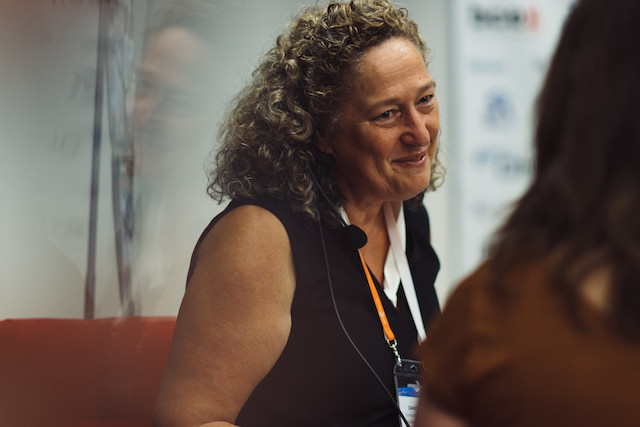Jess Bauldry: What is Asteroid Day and why did you set it up?
Danica Remy: Asteroid Day is a global day of education and awareness that was intended for and has inspired a conversation about asteroids all around the world. When we talk about asteroids, we talk about them for all reasons: for exploration, science and for planetary defence.
And our primary goal is to highlight the scientists, engineers and technicians who are working on asteroid-related activities. Whether it’s a space mission or scientists in a research institution or local astronomy club or teacher, we want to make sure it’s a day for everyone to talk about asteroids.
We’ve built a rich set of communication tools and resources for teachers and the public and our goal is that there are as many independently organised Asteroid Day events as possible.
Our very first year we had about 150 (events), last year we had about 500 and this year we’re already over 1,000 independently organised events. So, we’re doubling every year and that is in part because of the really great space missions that are in process right now and the public has been learning about planetary defence. And so our goal ultimately is to protect the planet at Asteroid Day but we celebrate everybody who is working in the Asteroid area.
Among the people speaking during the 24-hour broadcast will be astrophysicist and Queen guitarist Brian May. How important is it to have big names backing this?
Brian was a huge accelerant. If we didn’t have Brian along with the folks who signed on for the 100 acts, I don’t think we would be as far as we are today. Brian has been instrumental as a lead spokesman for us in addition to Rusty (Schweickart--Apollo 9 astronaut). What really makes a difference is all the scientist and engineers working in this area. Brian is a spokesperson for all their work and the importance of their world.
Asteroid Day is for the first time in a partnership with Luxembourg, which will be its headquarters the next three years. What does this partnership bring?
We’ve had a couple of really amazing partners who helped us build Asteroid Day the last three years. Discovery Science, the ESA as have other big space agencies. Luxembourg is a really unique country with the vision that has been laid out for the utilisation of space resources. Luxembourg is a great venue to have a global conversation from because Luxembourg is small but not small around the world. And so, being able to have Asteroid Day broadcast from Luxembourg is a tremendous asset for us to be able to grow the global conversation.
The Luxembourg industry has been amazingly generous to Asteroid Day. So, SES, the BCE, RTL and obviously the Lux government, the combination of these organisations coming together to support this global conversation probably could not have been found anywhere in the world.
This is the first year we’ve had a major worldwide event that’s centrally located. We will do these kinds of events here for the next three years and, we hope, the next decade.
What outcomes do you hope for from Asteroid Day 2017?
The outcomes that we’re hoping for from today is a continued conversation about asteroids whether they be friends or foe. I would say another outcome is that we had hoped we would get to 700 events this year, we’re already at 1,000. We learned last year we thought at first we had maybe 300 but because they’re independently organised and we don’t require anyone to register we kept finding more and more events. Today we know we have 1,000. So, we have completely hit our goal to increase the number of formalised conversations around the world about asteroids.
Members of the public can meet asteroid experts and astronauts at the Cercle Cité in Luxembourg Ville on 1 July, from 2pm to 4pm.
